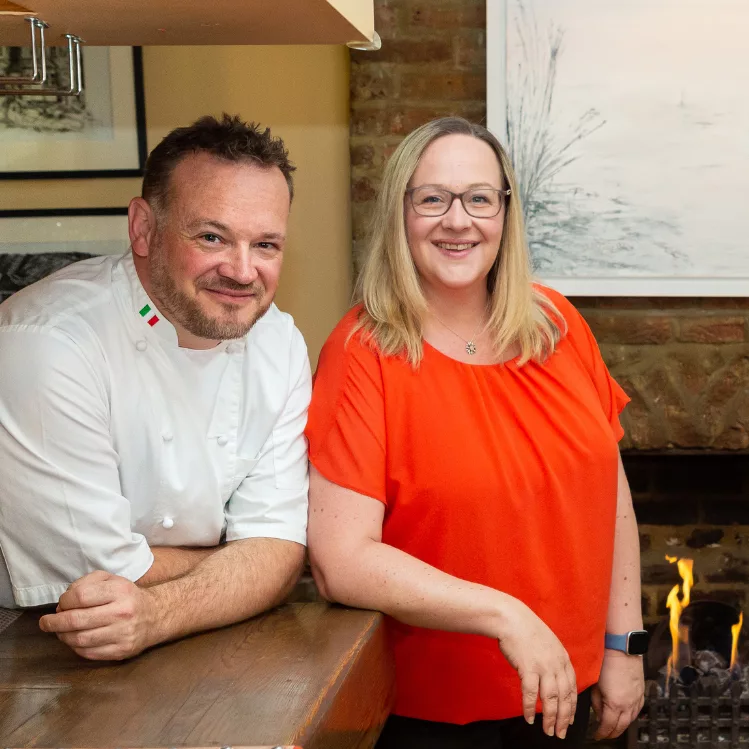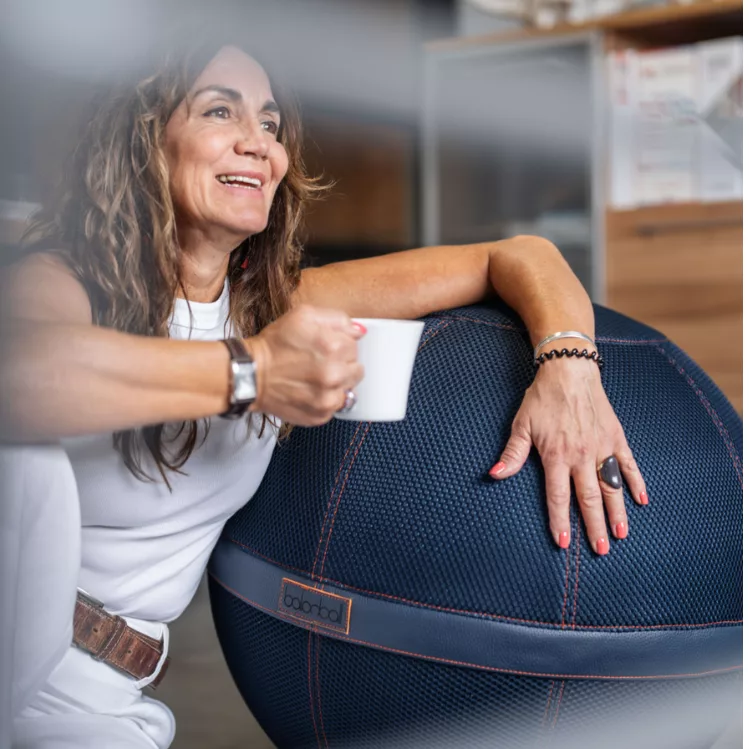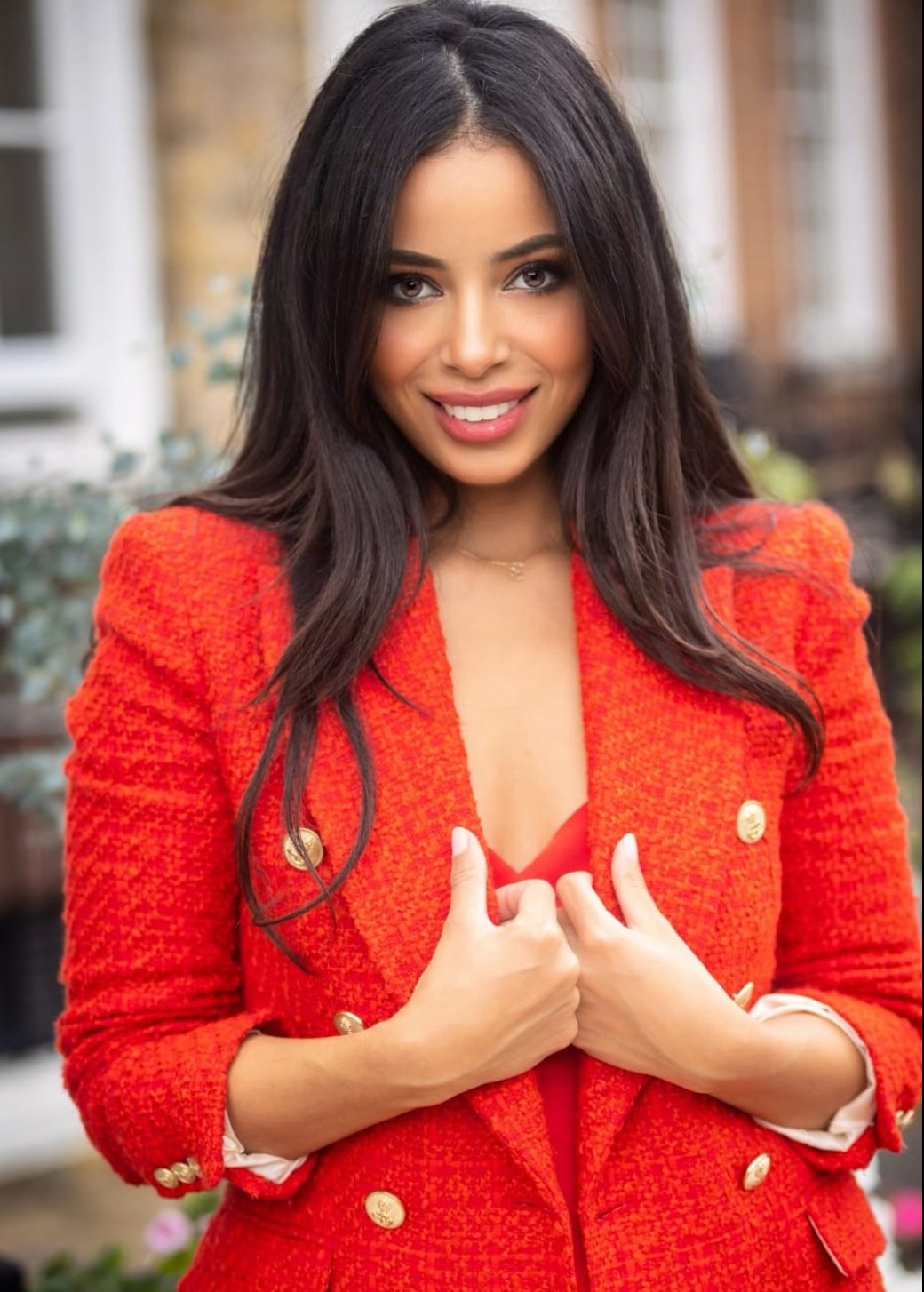
Enas Daeki: The Only Thing That Can Stop Me, Is Me
By Sujany Baleswaran
With an insatiable passion for all things beauty, Enas Daeki experienced pitfall after pitfall before entering the beauty world, from her father’s death, battling bulimia, fleeing the civil war in Libya to starting a new life in London. Leaving her life behind in culturally rich Libya, Daeki found herself in London, where she witnessed a side that was different to childhood holidays filled with ice cream and sparkles, instead, she felt the crashing reality of trying to create a life in London. With dreams of parading the fashion world on the streets of London, Paris and New York, Daeki founded Arabela Agency, a celebration of women from all walks of life.
You always dreamed of being the best dressed, from your childhood dream of being the best-dressed veterinarian to your family’s wish of the best-dressed dentist. Where did your passion for beauty begin?
My passion for beauty began as a child, watching my mom putting her makeup on and getting dressed for weddings and social gatherings. She had a huge closet area, and I would get lost in that world. I was obsessed with her high heels and clothes and spent the whole day trying them on. That obsession stayed with me until this day.
As soon as I came to London, I wanted to get into the fashion and beauty industry. I began working in beauty retail and just fell in love with all the new ideas and products. I always loved fashion and beauty events, and I have a dream that one day I would create big events in this city called London, then travel to Paris and New York and do the same.
What inspired you to create Arabela Agency?
I was simply inspired by a love of beauty, culture, and women being all they could be in life. I always wanted to create a business where I could celebrate the beauty of women – as founders, entrepreneurs, creatives, and also as consumers. Arabela was the perfect vehicle as we sit between these female trail-blazers and the amazingly beautiful women, from all walks of life, that consume their incredible beauty products.
We live in a world that values tall, slim, white-skinned blonde women, and many of us grew up with these images plastered on the TV, magazines and billboards. You struggled with your own image from a young age. Can you tell us more about your personal struggles with your body image and your battle with bulimia? How did this affect your childhood?
I always viewed myself as an ugly fat girl that didn’t fit into the beauty standard that my family and children at school ascribed to. The kids at school used to bully me for my curly hair and call me fat. I remember when I used to ask for a sandwich they say “only one? Are you sure you don’t want five?!” and laugh at me. I was also surrounded by images of tall, skinny, blonde movie stars and celebrities… it made me feel uglier. Also, in my culture, we really value fair skin, Northern European skin tone – my olive, dark skin was never held up as beautiful.
The conversation was that to be beautiful, is to be light-skinned with soft hair and a slim body, and I didn’t have that. When my father got ill, and I had to deal with my world being turned upside down, I lost my appetite and didn’t eat. Even though I didn’t feel great, I liked the fact that I started to see my ribs. I felt beautiful, in one way, yet still ugly as I wasn’t skinny enough.
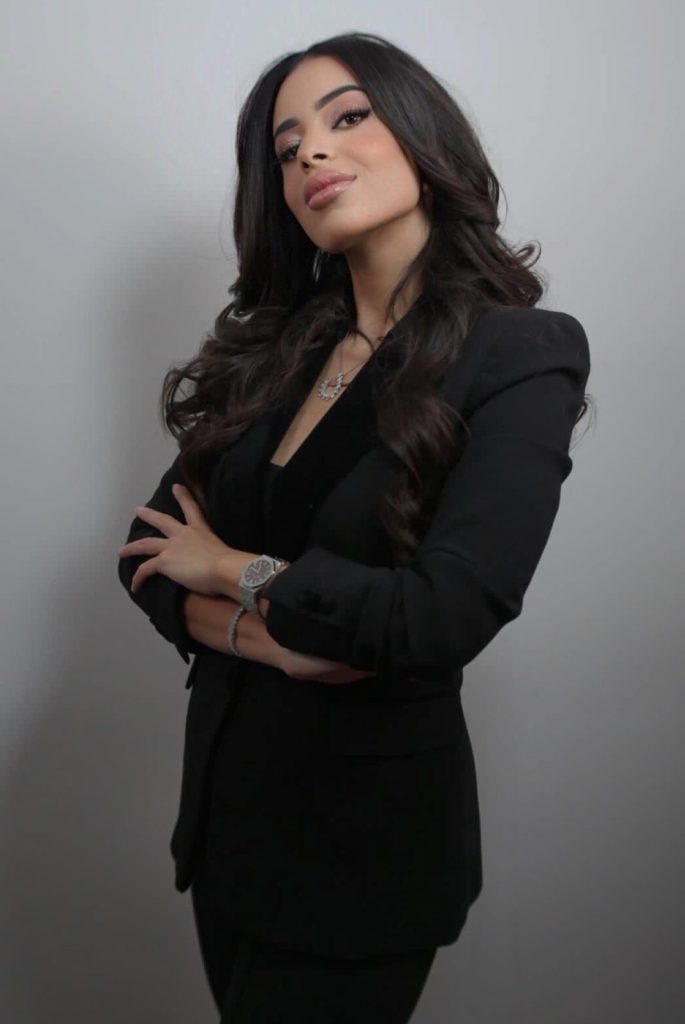
How did you defeat these insecurities? What advice would you give to women who are struggling to feel confident with their bodies?
First, we need to recognise that even the women we look up to and think are the most beautiful in the world have the same conversations – that they are not pretty enough, they don’t have the right skin tone, height, or weight. They don’t have the right boobs or the right ass.
Insecurity is universal, and that’s ok. Once you can accept that, start to embrace your imperfections, you can then focus on what you do love about yourself and build from there.
As cliché as it sounds, it’s embracing that inner beauty – self-love, compassion, strength, that’s where the power is. I learned the most beautiful women seemed to glow from within – and that’s beautiful. Of course, the right outfit, makeup, and skin routine help too…
Whilst battling bulimia, you also watched your father’s health deteriorate, and a civil war erupt in Libya that led you and your family to flee the country and seek asylum in the UK. It takes a tremendous amount of strength to push through these never-ending obstacles. What was going through your mind in these moments? Were you feeling defeated, or was there still an inkling of hope?
I really did feel defeated, that there is no way out. I was at breaking point, yet I had to battle through it – it was not easy. It was awful, and I was angry, really angry. It had me question everything that I knew, everything I was taught to believe in. But there was always a small glimmer of hope, something energetic, something spiritual. I slowly discovered inner strength, and that’s when hope grew. I said to myself, if I had to go through this and it didn’t kill me, then there must be something that I’m living for, and it better be big too because I’m not going to go through this for nothing.
Can you tell us more about the beauty of Arab Libyan culture? Did you experience a culture shock when you moved to the UK? How did you adjust to a very contrasting culture?
Although there are some restrictions for a Muslim Arab woman in Libya, there is beauty too, as you have certainty. It is a very specific culture with rich heritage and traditions – the beauty of marriage, the costumes, the ceremonies, and rituals. These were things that I found beautiful growing up. The music that we danced to as kids, the food, and just the energy of a family-orientated culture, was beautiful in so many ways.
But I definitely experienced a culture shock coming to the UK, especially when I knew I would be here for an unknown period. Suddenly the joy of the routine holidays as a kid in central London, eating ice cream, were replaced with the reality of trying to create a life. The was no cultural certainty, no sense of community or family. London was a big city, and I was in an unfamiliar part of it. Though there was more freedom, that freedom seemed to come at a price – loneliness and isolation. I lost my identity as I tried to fit in, and it just didn’t work. Eventually, I started to meet people, make friends and gradually fall in love with the melting pot of London. I fell in love with UK culture, especially the freedom to be a woman in full self-expression.
But I never lost my core Libyan cultural values, things like family, dignity, self-respect, beauty, and compassion.
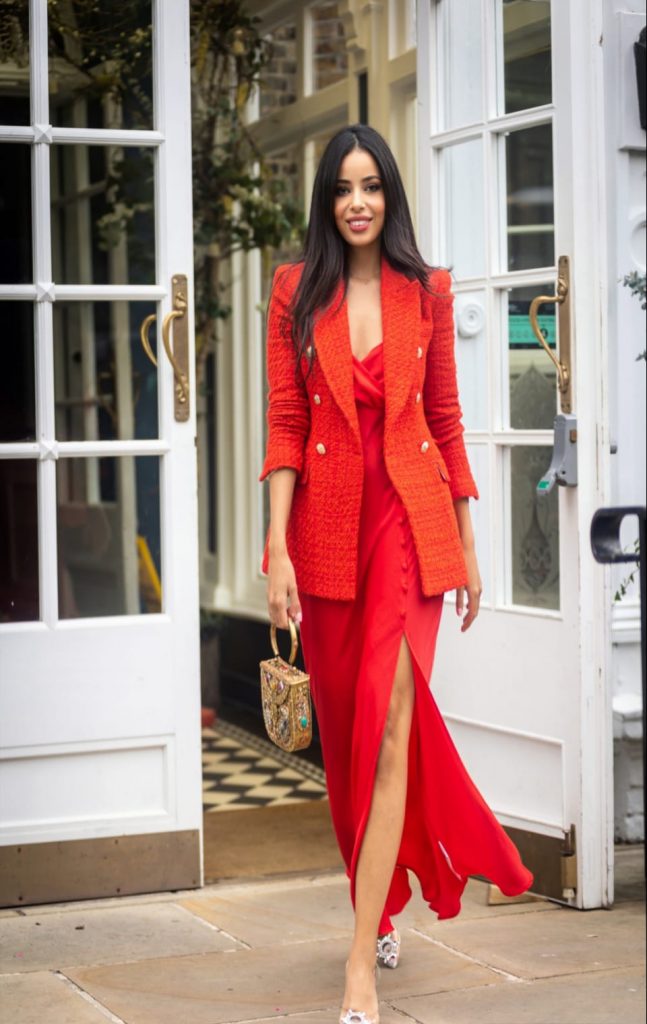
You once again showed your strength by deciding to remain in the UK alone, despite your family’s protest. How was this experience?
Honestly, It was scary. I had never before lived apart from my family. But, after my father’s death, I felt I had nothing to lose. I’d already had to give up on my dentistry degree, my country was in a civil war, and it didn’t make sense to return. Also, my dreams as a little girl, the ability to be all I could be, I knew in my heart, I’d have the freedom to pursue that as a woman in the UK. I wanted to honour my father’s death by being all I could be in life. To build on the legacy that my father had left for me, all his hard work, all his sacrifice. The best way I could honour him was to remain somewhere where the only thing that could stop me, was me.
You are now a formidable coach and mentor, currently training to lead international programs, whilst also running Arabela Beauty Agency. What does the future hold for you and Arabela Agency?
Arabella will always be a company that supports women founders. A company that’s dedicated to making a difference. I see a future where young girls, young refugees like myself, step into a world where there are no barriers to what is possible for them. If they can dream it, they can do it, as long as they are prepared to work hard and not give up. If Arabela can be at the heart of that movement, then I will have done my job.
I also foresee a future where Arabela works to bring sustainability to the beauty agency, where we support products that are kind to us and nature. I am so excited about what’s to come.
The obstacles you have faced have only made you stronger. What’s one piece of advice you would give your younger self?
I would say, “Enas…Pain… is a blessing – use it! It will make you stronger in the end. It will give you purpose and power. Power enough, if you really work hard, to perhaps even change the world”.
I really learned that pain and struggle can give you fire! It’s what has driven me to make a difference and contribute to the world, and also made me unstoppable and very brave. The worst thing that can happen is I experience pain again, and I made peace with that a long time ago.
What does female empowerment mean to you?
What Female empowerment means to me is women supporting women. Women really getting behind each other – networking, collaborating, sharing their stories with an intention to inspire others, especially the pitfalls and pain, cheering each other on in their leadership. That’s why I love Mirela, she embodies that spirit. Always supporting and championing women – it is so inspiring to me. She is a beacon of leadership – someone you can look up to as a successful woman who made it in life, yet reaches down to help other women up. That is female empowerment.



